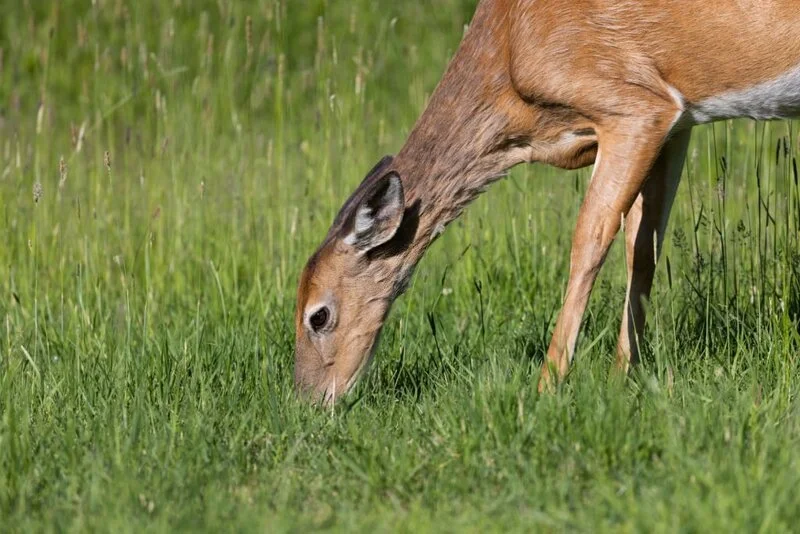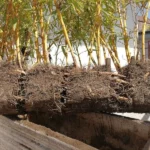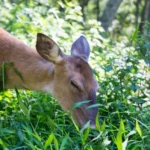When dealing with hungry deer, gardening can feel like a never-ending war against nature. They seem to be able to eat anything and will happily graze on your meticulously tended plants. The sour garden staple rhubarb is one plant that may perplex you. Can those slender, leggy guests stand up to it? Is rhubarb safe to feed to deer? Let’s investigate the rhubarb culture and the deer diet for clues.
Understanding Deer Diet
Deer are opportunistic eaters but also creatures of habit. Generally, their diet consists of a wide variety of grasses, leaves, stems, buds, fruits, nuts, and seeds. When deer are hungry, they will eat just about anything, including plants in your garden. This is especially true during the winter or in overpopulated areas. This is why these refined creatures can treat your landscape as an open buffet.
Because of their versatility, deer can be difficult to keep out of your garden. What one herd of deer shuns, another herd may devour. What they’ve had in the past and what additional meal options they have will both play a role. So, let’s talk about whether or not rhubarb will be eaten by hungry deer.
About Rhubarb
In the plant kingdom, rhubarb can be difficult to pin down. The fact that it may be used in sweet applications like pies and jams has led to its misclassification; in fact, it is a vegetable. Rhubarb has a distinctively sour taste and, depending on the variety, either green or red stems.
The plant can survive harsh conditions and still thrive, making it a perennial. It is one of the earliest signs of life in a dormant garden, appearing in the early spring. The bright green stalks of this plant are prized for their culinary versatility, but the huge, deeply lobed leaves are poisonous due to the high levels of oxalic acid they contain.
Do Deer Eat Rhubarb?
Is it true that deer don’t like rhubarb? In most cases, the answer is negative. Although they eat a wide variety of foods, deer often avoid rhubarb because of its inherent toxicity. Rhubarb’s big, oxalic acid-rich leaves help keep deer away. However, deer may still eat the stalks, which are less toxic than the leaves, especially in locations where food is scarce.
Rhubarb isn’t always vulnerable to deer damage, but it’s also not a deer’s first choice. Deer will eat rhubarb if they are hungry enough, maybe leaving you with a chewed-up plant. How can you keep the deer from eating your rhubarb when you least expect it?
Protecting Rhubarb from Deer
Your rhubarb probably isn’t a deer’s favorite pleasure, but it’s still smart to be cautious. Fencing is one of the best ways to keep deer out of your garden and safeguard your rhubarb plants. A high, solid fence can serve as an effective barrier.
Homemade or store-bought repellents both work. These need frequent reapplication, especially after it rains. You may also use companion planting to create a natural barrier by growing plants that deer don’t eat near your rhubarb.
Finally, think about a scare strategy, such as a sprinkler or lights that turn on when motion is detected. The commotion and loudness may spook the deer, causing them to look elsewhere for food.
Conclusion
Even though deer typically don’t eat rhubarb, they may try a few stalks if they’re desperate. However, with the correct defenses in place, you can save your rhubarb and the rest of your garden from these lovely pests. Always keep in mind that familiarity with the local fauna and its routines is your best line of protection. Cheers to a garden that is safe for you to enjoy but off-limits to the deer!



